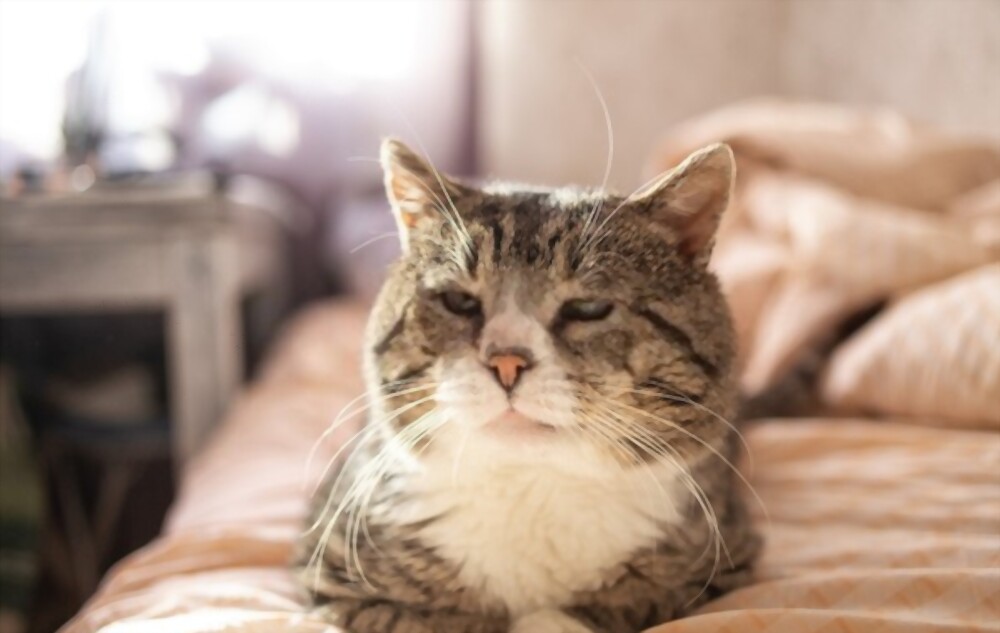A new feline friend is joining the family? Oh, it’s a senior cat? That’s great news, I believe it’s time for some good house adjustments. Senior cats are just like old people, they have thorough wisdom but they also grow on love! Many people believe that it’s easier for adult cats to adapt than kittens but the truth is completely the opposite! Kittens can easily get used to any safe place with food and warmth. On the other hand, a new house means a new planet for a senior cat and that’s probably the most challenging aspect of taking a senior cat in. Don’t feel down my friend, raising a senior cat comes with a lot of advantages like calmness and less training. You have to keep a safe loving environment for your pet and Pet Barn has to provide amazing tips so, shall we start?
- Start With a Tour around the House
With age, cats struggle with vision and cognitive problems but that doesn’t mean they lose their exploration instinct, especially in a new house. You basically need to act like a cat! Look for small slots where a cat might get stuck and make sure to secure the windows as well. Another important thing is securing cables and wires as cats find them tempting to chew and might end up with an electronic shock.
If I’m old, it doesn’t mean I can’t climb the medication counter and have a taste! Sadly, many cats die from human medication poisoning, make sure medications are locked and out of reach.
Don’t forget to check if your garden plants are safe to eat because who knows? Your cat might consider taking a taste as well.
It’s important to take your time looking under the coaches and behind doors before taking your dear feline friend home!
- Supplies To Get
- A comfy warm bed: As cats grow old, they become less energetic and willing to sleep up to 20 hours a day. It’s essential to pick a comfy spot for your beloved feline friend away from the noise and excessive light. Taking into consideration that senior cats’ favorite hoppy is stretching, prepare a 15 inches cave bed for extra protection.
- Extra Litter boxes: Senior cats don’t have much control over their bladder and their mobility is harder than before therefore it’s important to keep more than one clean litter box to avoid unfortunate accidents.
- Raised and angled food & water bowls: It’s important to keep your beloved cat full but placing the bowls on the floor can make eating neck-straining for older cats. Keeping food bowls high and angled can encourage cats to eat well.
- Special grooming kit: Senior cats need more grooming as they lose more hair and have less ability to clean themselves. You need to choose soft grooming tools to avoid irritation. Also, keeping up a good grooming routine is essential to avoid skin infections.
- Ultra-soft chews: One of the common health problems in senior cats is joint problems. Soft chewing capsules are essential to boost your cat’s joint health.
- Toys: The parent-hood feeling is a part of cats’ nature, they love to protect smaller ones therefore, bringing cotton stuffed toys is essential to keep your cat feeling worthy and productive.
- Strollers & Carriers: Your precious feline friend might not feel well all week long and that’s when you need to grab the carrier and head out to get some fresh air.
- Dry shampoo: Cats are hygienic by nature but for seniors, it might become hard to stay clean so, keep a bottle of soft dry shampoo for the grumpy days.
It’s important to choose a rich diet with easy-to-digest food. Senior cats need less fat and fewer calories in their diet. For dry food, choose one of 10% fat and 28% protein with 4% fat and 8% protein for wet food.
- Safety Cautions
- Night lights around the house: Age doesn’t change the 3 AM cat rule of waking up and haunting toys! Because their vision isn’t as sharp as before, providing the messy areas with dimmed lights is essential.
- Little stairs and ramps: Help your cat discover around freely and safely by making every part of the house accessible. Also, avoid placing litter and food boxes somewhere far from your cat’s bed.
- Be a 24/7 Vet
Cats might age more gracefully than dogs but they still age and that’s when our turn comes! Intestinal problems, diabetes, an overactive thyroid, and renal disease are common among senior cats. It’s essential to run checking tests before bringing your cat home. Also, understanding the symptoms and defining the red flags is a must to keep your cat healthy.
Over time, you will be able to create a stable medication schedule and gain expertise to know how to handle any medical emergency but keep an eye on digestive and mobility conditions.
As we age, we start appreciating forever company, compassion, and caring souls! Cats are no different, they realize that you are there for them making their grumpy years happy. It’s not easy to take a senior cat in but the greater the responsibility, the greater the love! Preparing your house for your new friend might seem like a lot of work but you can do it! Pet Barn would love to hear about your special reception ceremonies in the comments.

